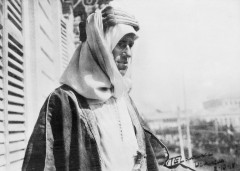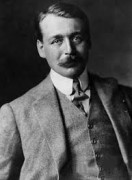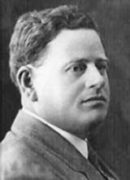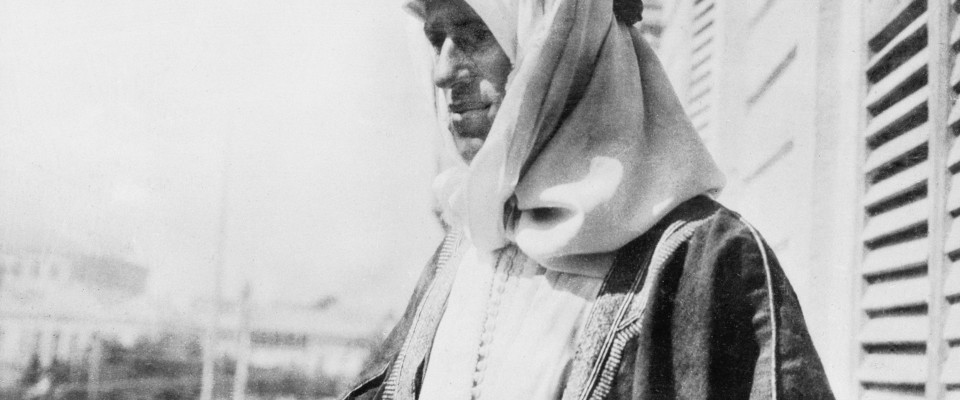The Middle East as we know it today was essentially formed during World War I, when Britain, in conjunction with France, secretly carved out the region at the expense of the tottering Ottoman Empire and in violation of a promise to support Arab autonomy within a greater Arab state.
While an Oxford University-trained archeologist named Thomas Edward Lawrence played an integral role in instigating an Arab revolt in the sands of Arabia, a pivotal event that would strip the Ottomans of their vast imperial holdings, two mid-level British and French diplomats, Mark Sykes and Georges Picot, conspired to redraw the map of the Middle East.

As a result of this rebellion and these colonial machinations, Britain and France, much to the disappointment of the Arabs, were handed League of Nations mandates in Palestine, Iraq, Syria and Lebanon.
Scott Anderson, in Lawrence in Arabia (McClelland & Stewart), skillfully recreates this tumultuous period.
Lawrence, or Lawrence of Arabia as he has come to be known in popular lore, dominates the landscape of Anderson’s sprawling book. In his shadow lurk three others who attempted to alter the course of Middle Eastern history: Curt Prufer, a German orientalist who would be Germany’s counter-intelligence chief in Syria; William Yale, the only American field intelligence officer in the Middle East during World War I, and Aaron Aaronsohn, an agronomist and Zionist who established a British spy ring in Palestine.
As they went about their business, maneuvering and conniving, they may well have thought that the Middle East was at the center of the universe. In fact, the extremely bloody war in Europe was of far more importance than the fighting in the Middle East, which was tame by comparison.
As Lawrence admitted, the Arab Revolt was a “sideshow of a sideshow.” In retrospect, however, the battles in the Middle East left a lasting impact.
Lawrence, an academic without a shred of military training, was thrust into the thick of Middle East intrigue after being seconded to the British Royal Engineers, which was conducting a mapping survey of the lower half of what is now Israel. The expedition, packaged under the guise of an innocuous archeological survey of biblical sites, would prove to be of military importance after the Ottoman Turks entered the war on Germany’s side.
With the Turks militarily engaged alongside Germany, Lawrence was sent to Egypt, a British protectorate since the 1880s, to join Britain’s new intelligence office in Cairo. As the war rumbled on, Lawrence argued that conventional warfare against the Turks would not work and what was needed was a commitment to guerrilla tactics.
Emir Hussein, the Sherif of Mecca, was ready to align himself with Britain after the British high commissioner in Egypt, Henry McMahon, wrote a memorandum in 1915 recommending that Britain recognize and support Arab independence within the territorial parameters he had demanded. But McMahon’s declaration was basically superseded by the Sykes-Picot agreement of 1916, of which Emir Hussein was unaware.

To add to the betrayal, the British government, on Nov. 2, 1917, issued the Balfour Declaration, which favored “the establishment in Palestine of a national home for the Jewish people…”
A few days before this historic document was made public, the Russian-born British Zionist and scientist, Chaim Weizmann, was given advance notice of its imminent release by Sykes himself.
Weizmann’s companion that day, Aaronsohn, a Romanian Jew who arrived in Palestine with his parents when he was six years old, believed that the Zionist dream of statehood could be brought closer to fruition with the dissolution of the Ottoman Empire.
With Germany vying with Britain for influence in the Middle East, Prufer, fluent in Arabic, tried to foment anti-British sentiment in Syria and Egypt. One of his first spies was Minna Weizmann, his lover as well as Chaim Weizmann’s sister.
Prufer’s second task was to help bring the still-neutral Ottoman Empire into the war. He and his boss, Max von Oppenheim, a German diplomat of Jewish extraction, had a hand in persuading the Ottoman minister of war, Enver Pasha, to sign a mutual defence treaty with Germany. As it happened, it was signed just hours before Berlin declared war on Russia in August 1914.
By this juncture, oil had become a crucial military asset, as Anderson points out. Huge oil and gas deposits had been discovered around Baku on the Caspian Sea in the 1870s and in the Persian Gulf in 1908.
Yale, whose great-great uncle founded Yale University in 1701, was an agent of the Standard Oil Company of New York. Posing as a wealthy tourist, he and another employee were dispatched to Palestine on a secret mission in search of oil.
As all these events unfolded, Lawrence met Aaronsohn in Palestine in 1917. “It was an interview without any evidence of friendliness,” Aaronsohn noted in his diary. In short, Lawrence was not sympathetic to the Zionist cause, prompting Aaronsohn to write, “He is openly against us.”

Lawrence, having fought with Arab irregular forces under the command of Emir Faisal, a son of the Sherif of Mecca, supported the Arab struggle for sovereignty. But just as he was becoming a household name in Britain, Lawrence’s usefulness to the British government ended as Britain and France formalized the Sykes-Picot agreement.
Several years after the war, Lawrence joined the Royal Air Force under a pseudonym and worked in a succession of lowly jobs. In 1935, at the age of 46, he was killed in a motorcycle accident. In a message to his brother, King George V eulogized him: “Your brother`s name will live in history …” His eulogy was, of course, an understatement.
Like Lawrence, Aaronsohn met an untimely death, being killed in an airplane crash off the coast of France in 1919.
Prufer, who went on to become the personnel director of Nazi Germany’s foreign ministry, was appointed its ambassador to Brazil as World War II broke out. Turfed out of Brazil after being accused of being a spy, he returned to Germany, only to flee to neutral Switzerland in 1943.
In the wake of the war, Yale served as an expert on Middle Eastern affairs to the U.S. delegation at the Paris peace conference. Later, he was a professor of history at two universities.
Anderson, a seasoned war correspondent who has reported from the Middle East, weaves their stories together in expert fashion. A distinguished stylist, he blends meticulous research with an uncommonly felicitous writing style.
In Lawrence in Arabia, he has written a book that is likely to stand the test of time.
